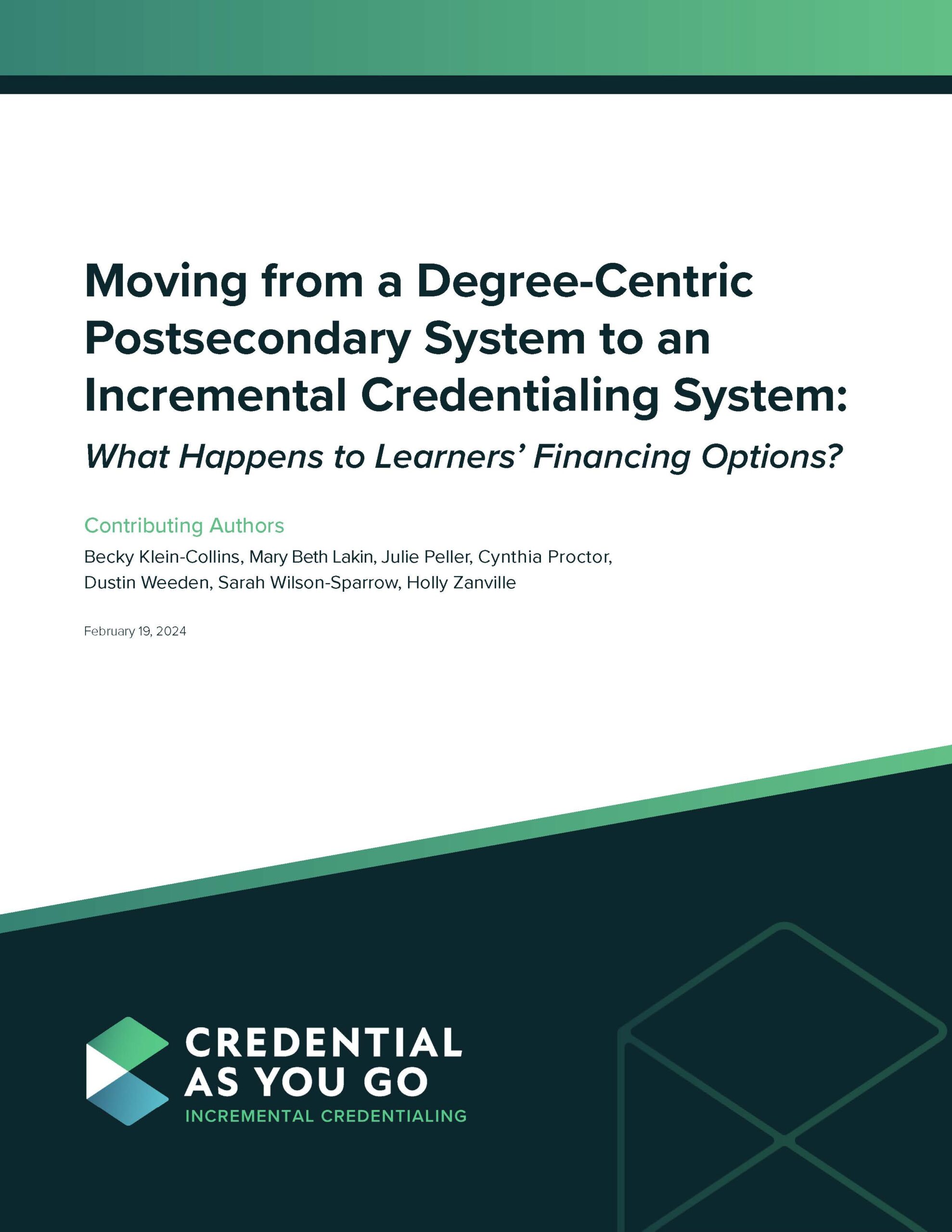
Though student financing is not listed as a discrete focus area, it is nevertheless a vital issue—one that touches nearly every area of the initiative’s work. For example, options for financing are typically a policy focus, an approach to addressing equity and inclusion, a learner support, and an area of professional development for those working in incremental credentialing. Financing issues also have implications for technology, particularly in how it might be used
to help learners navigate the system.
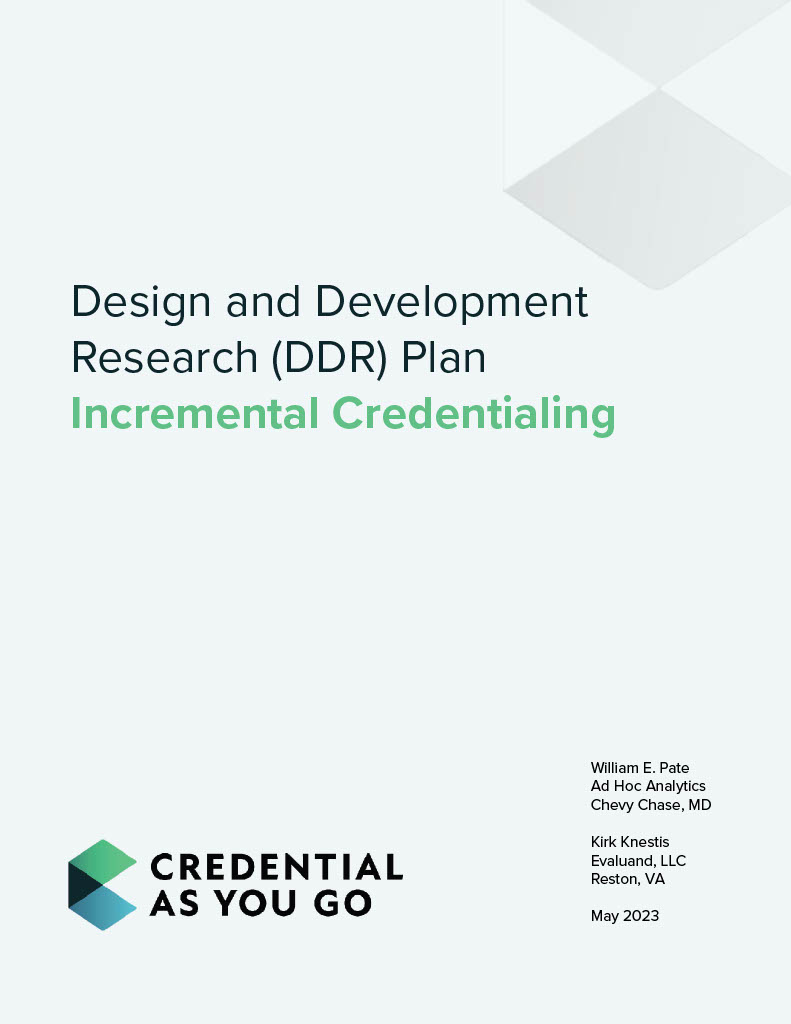
The Credential As You Go Priority 2 Outcome Research Project will utilize a Design and Development Research (DDR) approach following guidelines from the U.S. Department of Education and National Science Foundation. The study aims to inform the ongoing development of incremental credentialing models within the Credential As You Go framework and assess the resulting incremental credentials’ impact on postsecondary learner outcomes through quantitative analyses of academic and perception data. The research focuses on evaluating system- and institution-level policies and processes, with findings intended to protect study informants by not reporting at specific institutional levels.
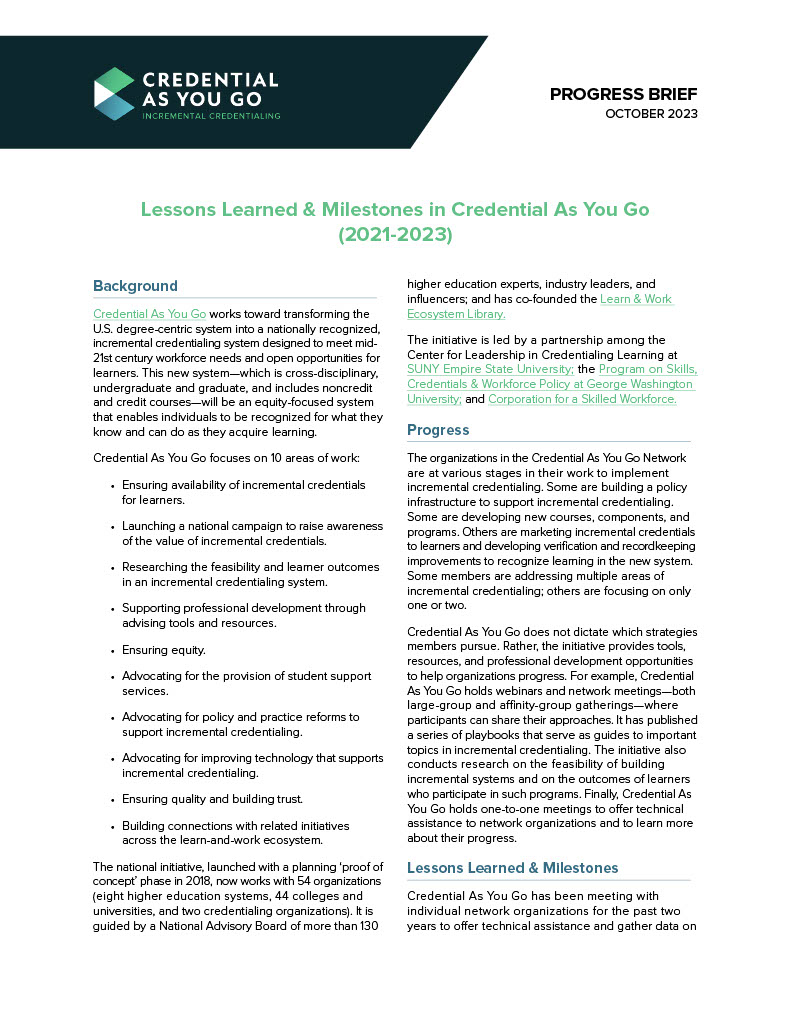
The Credential As You Go Network is witnessing progress in incremental credentialing approaches, particularly in high-demand fields like healthcare, information technology, teacher education, and cybersecurity. Institutions in these disciplines are creating accelerated credential pathways to address workforce needs. While some encounter challenges in adopting institution-wide approaches, network members propose ongoing support, including gap analysis, research facilitation, technical assistance, and outcomes research to refine and promote incremental credentialing practices.
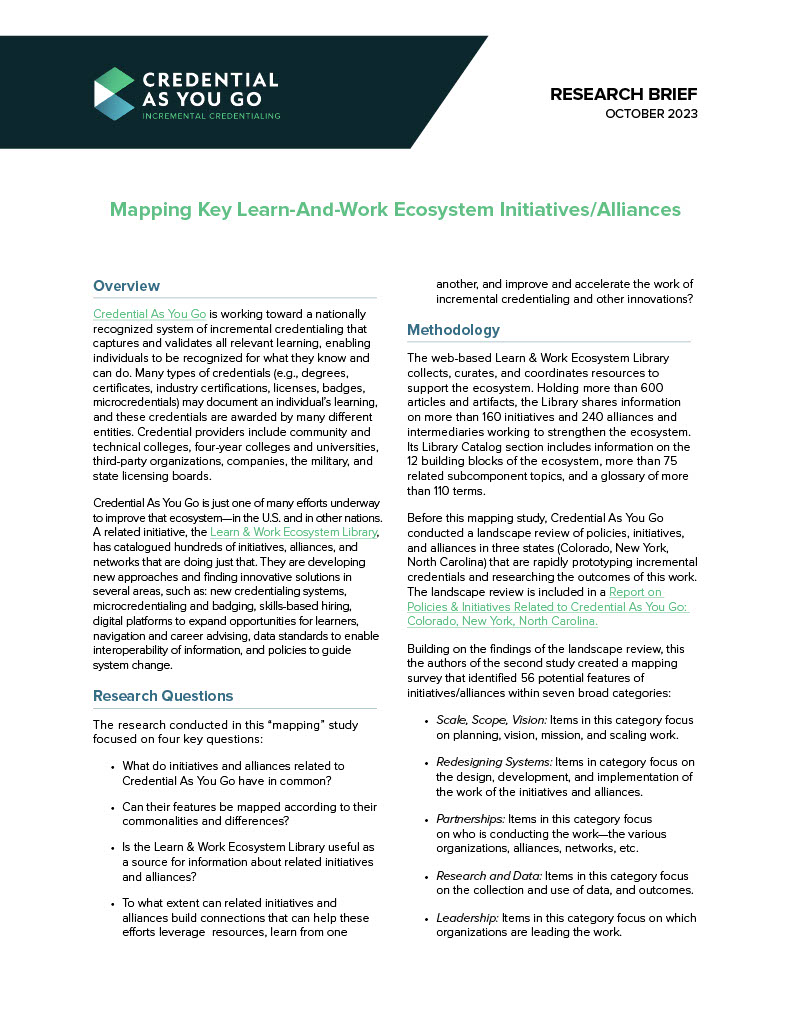
Credential As You Go’s mapping study identified needs including improving and connecting information about efforts to enhance the learn-and-work ecosystem, broader communication of this information, and better alignment of funding support among initiatives. The study emphasizes the importance of studying these developments in greater depth, as thousands of alliances and initiatives are working in the innovation landscape, with collaboration and resource focus seen as vital for the ecosystem to thrive. Mapping key players is recognized as a crucial initial step in achieving these objectives.
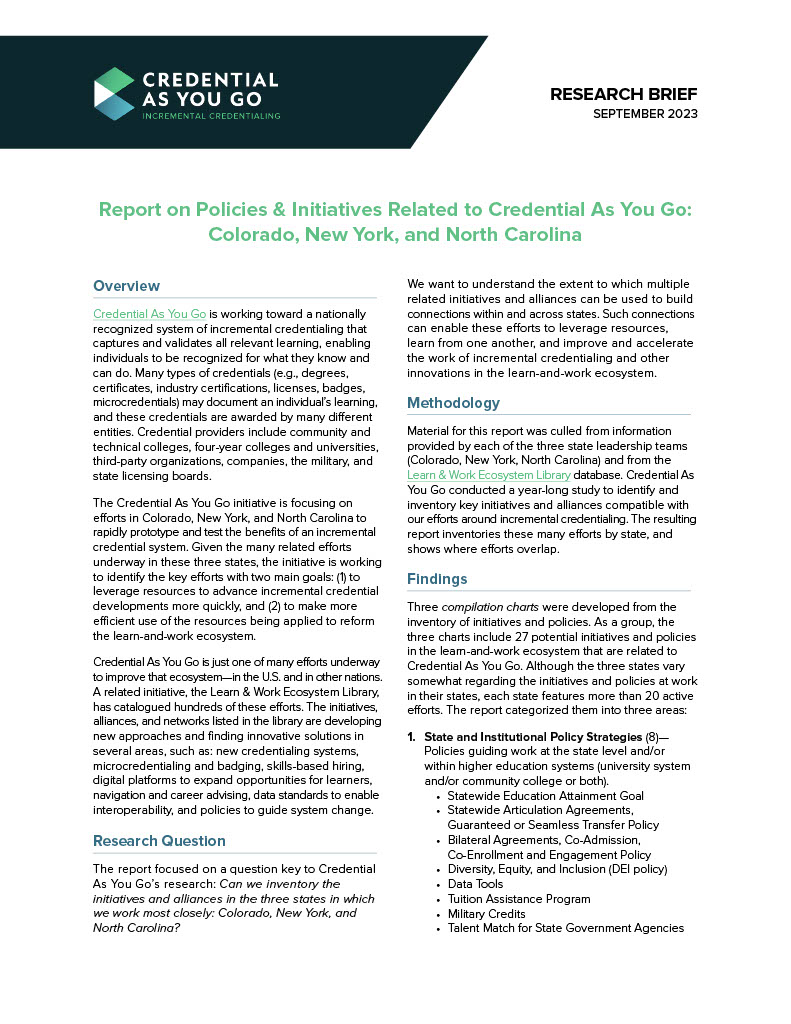
The Credential As You Go initiative aims to establish a nationally recognized system of incremental credentialing, acknowledging various types of credentials and credential providers. Focusing on Colorado, New York, and North Carolina, the initiative conducted a comprehensive inventory of over 27 related efforts in the learn-and-work ecosystem, identifying areas of collaboration, staffing challenges, and the need for improved information sharing. The report emphasizes the importance of coordination, intermediaries, and technology in navigating the crowded landscape of innovation and calls for better resources to leverage efforts, assess outcomes, and accelerate advancements in incremental credentialing.
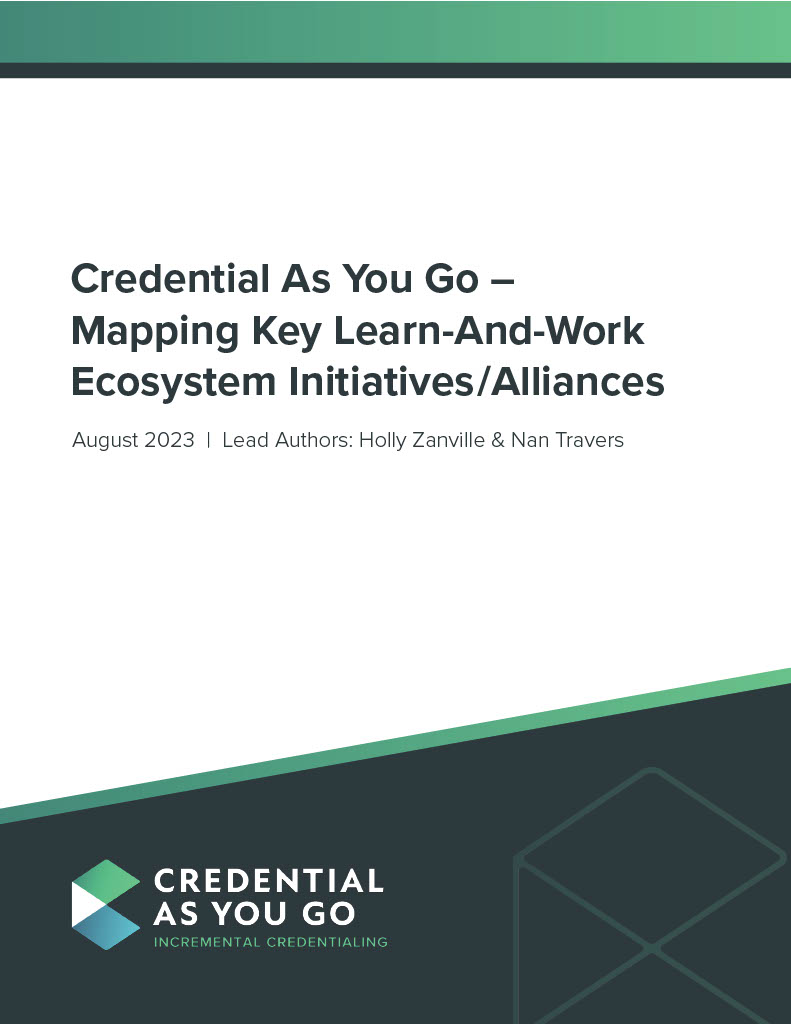
Credential As You Go is a national initiative aimed at transforming the traditional degree-centric learn-and-work ecosystem, responding to the inefficiencies of a system heavily reliant on degrees as a measure of skills. Recognizing the changing landscape, the initiative operates across three states—Colorado, New York, and North Carolina—focusing on incremental credentialing through rigorous research and development. Two accompanying reports provide a comprehensive snapshot of initiatives and policies within the three states and map key national initiatives/alliances, contributing valuable insights to the evolving credentialing landscape.
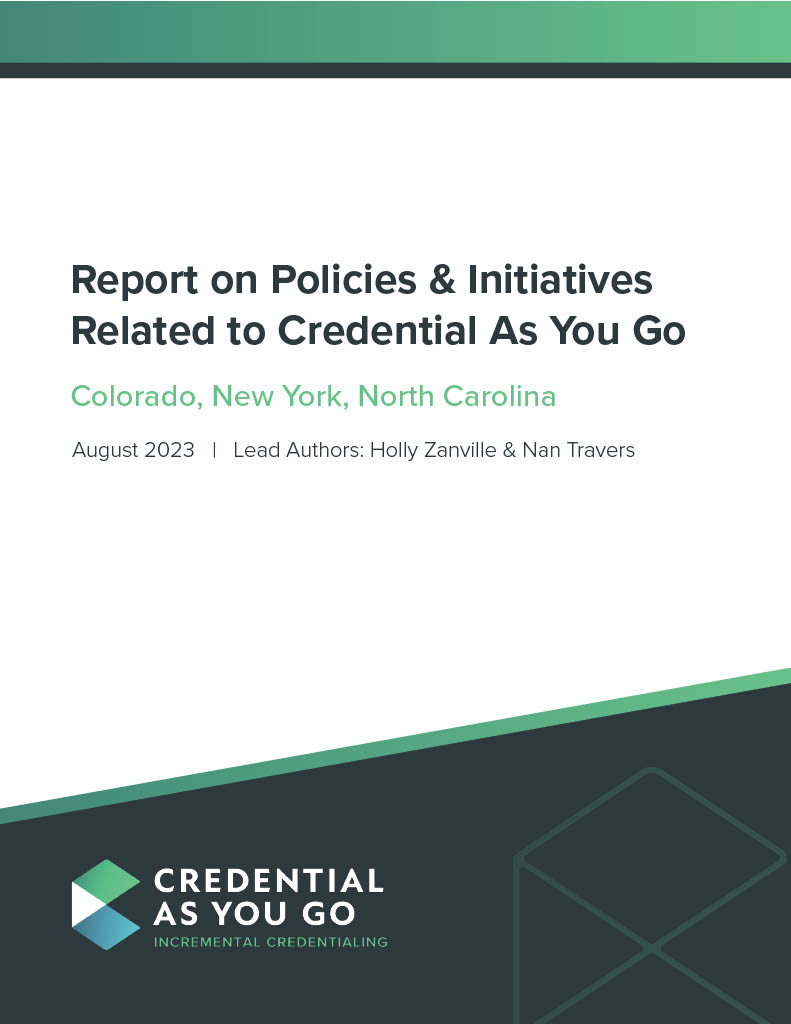
Credential As You Go is a national initiative aiming to transform the traditional degree-centric learn-and-work ecosystem, advocating for recognizing learning incrementally through various credentials. Operating across three states—Colorado, New York, and North Carolina—it focuses on developing and researching incremental credentials to assess their impact on the education and workforce system. The initiative acknowledges the crowded landscape of related efforts in these states, emphasizing the need for coordination, information sharing, and feedback to collectively drive positive changes in the credentialing ecosystem.
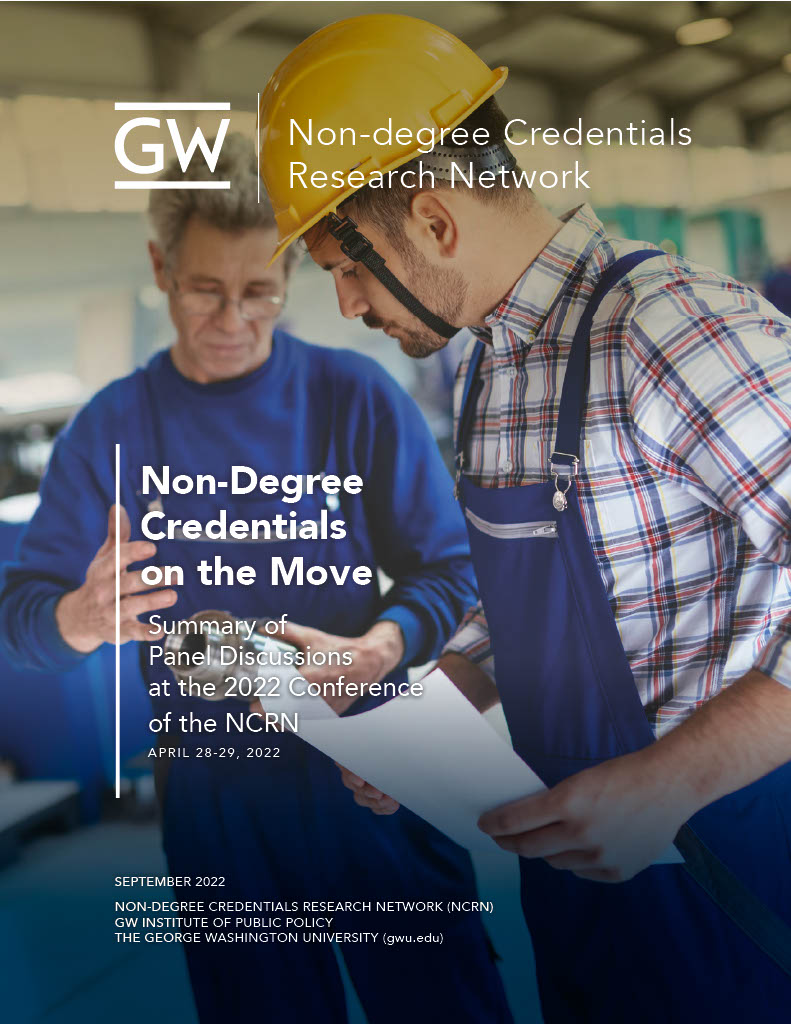
The Non-degree Credentials Research Network (NCRN) hosted its fourth conference in Washington DC, gathering around 100 researchers and stakeholders remotely and on-site, representing diverse organizations. The conference focused on non-degree credentials, covering certificates, certifications, licenses, apprenticeships, and badges, providing condensed summaries of presentations and discussions. Key themes included addressing disruptions caused by the COVID-19 pandemic, advancements in data infrastructure, and a global perspective on credentialing challenges, with insights from Australia, Canada, Denmark, Mexico, and OECD member nations.
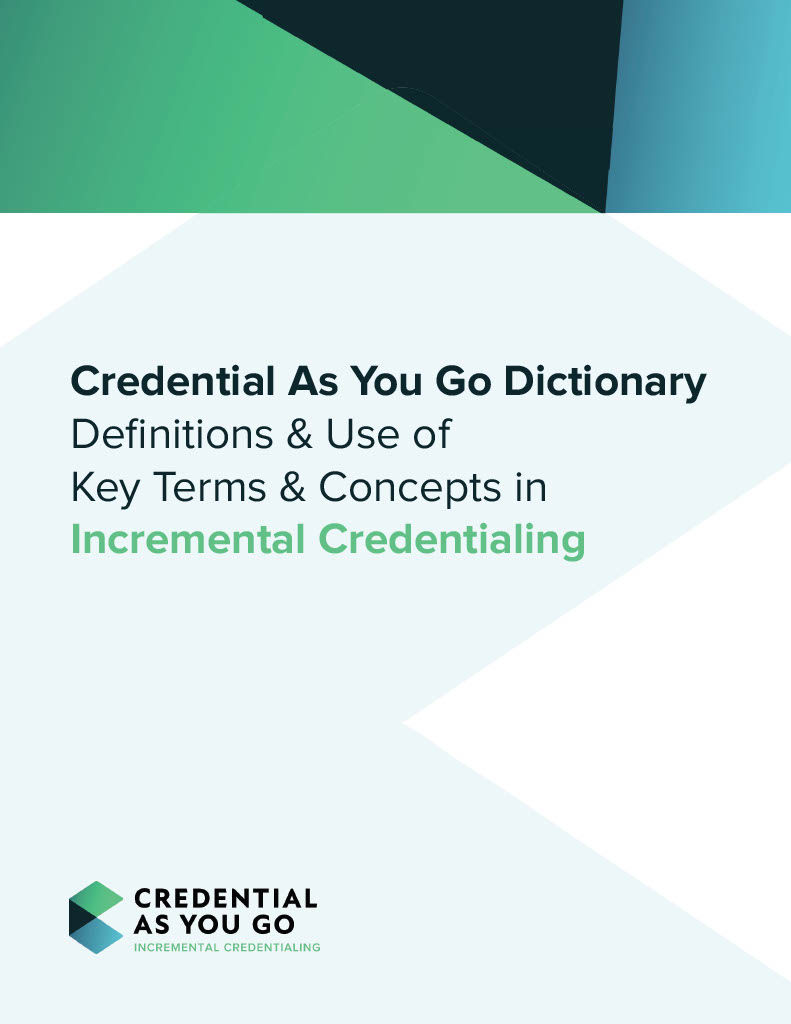
This document serves as an initial attempt to bring clarity to the diverse and evolving terminology within the learn-and-work ecosystem, particularly focusing on incremental credentialing. It aims to establish common ground by providing key definitions and understanding of terms used by various stakeholders, including learners, educational institutions, employers, policymakers, and accrediting bodies. Recognizing the influence of key organizations in shaping this language, the document acknowledges its evolving nature and commits to ongoing refinement as a dynamic resource housed on the Credential As You Go website and the broader Learn & Work Ecosystem Library.
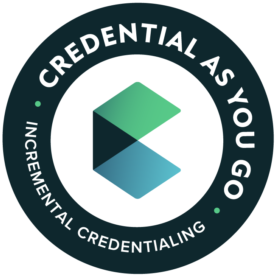
Credential As You Go has acquired three phases of funding to date. Lumina Foundation funded Phase I, resulting in the Incremental Credential Framework for testing. The Institute of Education Sciences, U.S. Department of Education funds Phase II (Grant R305T210063), which focuses on rapid prototyping of and research on incremental credentials with a national campaign. An anonymous private donor fund at the Program on Skills, Credentials & Workforce Policy at George Washington University funds the development of the prototype Learn and Work Ecosystem Library. Walmart funds Phase III, which focuses on systems change for expansion and sustainability of incremental credentials. The opinions expressed are those of the authors and do not represent views of Lumina Foundation, Institute of Education Sciences, the U.S. Department of Education, Walmart, or George Washington University.